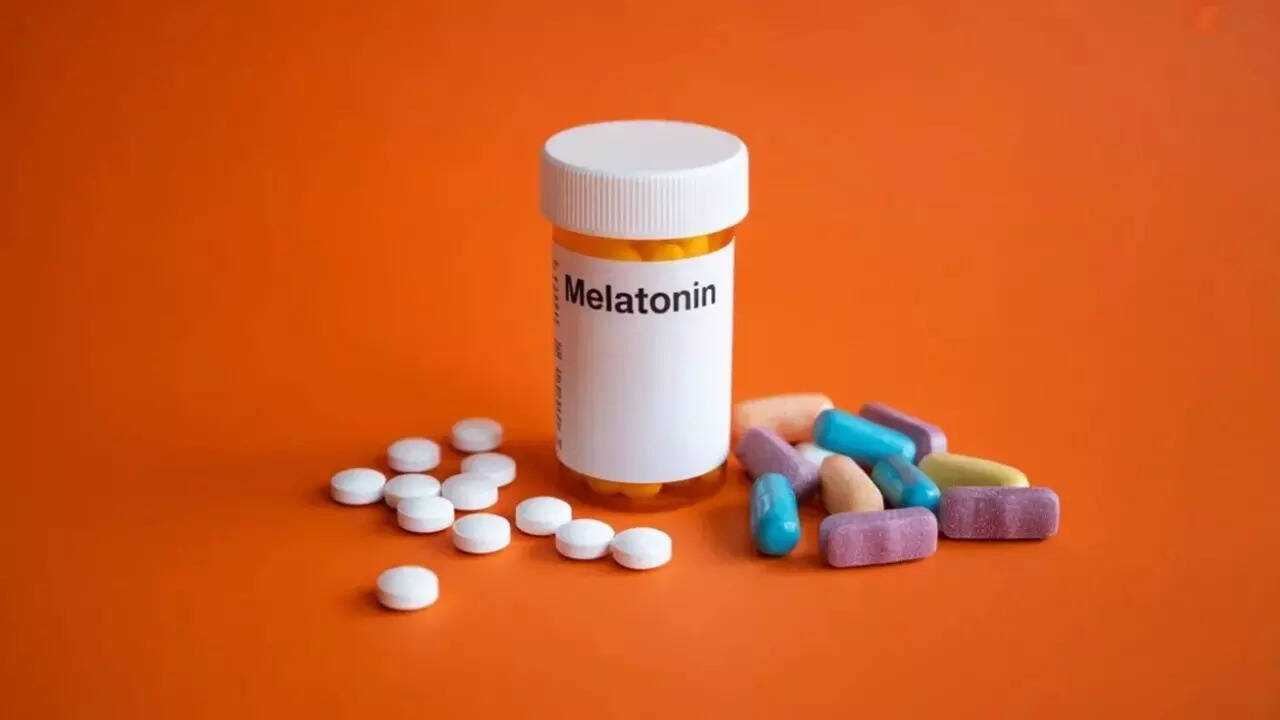ARTICLE AD BOX

Picture this: You’re done with all the chores for the day and getting ready for bed now. Skincare — checked, gadgets — kept away. And yet, sleep doesn’t seem to be in your vicinity. After a while of tossing and turning in bed, you reach out for the sleeping pill and pop a melatonin.But wait, you might want to check the latest research first — a new large-scale study has raised serious concerns, stating that long-term melatonin use has been associated with significantly higher rates of heart failure, up to a 90% increase over five years in people with chronic insomnia.
What does the study say
Melatonin has often been sold as a harmless supplement to help with sleep. However, the new study raises serious questions about the cardiovascular safety of melatonin when used for more than a year.

What exactly did the study find?Researchers analyzing five years of electronic health-record data from over 130,000 adults diagnosed with chronic insomnia found that those whose records showed — approximately 65,000 people — they had used melatonin for 12 months or more had about a 90% higher chance of developing heart failure compared to matched peers who had no recorded melatonin use (4.6% vs 2.7%).In a secondary analysis, people with at least two melatonin prescriptions filled at least 90 days apart (a marker of more sustained use) had an 82% higher risk.
What’s more worrisome? These users were nearly 3.5 times more likely to be hospitalized for heart failure (19% vs. 6.6%) and about twice as likely to die from any cause (7.8% vs. 4.3%) over the five-year follow-up period.The research was summarised by the American Heart Association (AHA) and set to be presented at its 2025 Scientific Sessions.The study excluded patients who already had a diagnosed heart failure or were on other sleep medications such as benzodiazepines, in an attempt to isolate melatonin use.
And it’s important to emphasize that although it raises a strong concern that demands attention, the study is observational and does not prove that melatonin caused heart failure.
Why is this *extremely important*
Melatonin is broadly regarded as safe and used widely for sleep problems, and is often marketed and used as a “natural” sleep aid, available over the counter in many countries (including the United States). However, the cardiovascular safety of long-term use has been largely unstudied.

Because of its widespread use, even the suggestion of a significant association with heart failure is widely concerning. Besides, this new data comes at a time when sleep disturbances and their impact on heart health are under increased scrutiny. Disrupted sleep, insomnia, and poor sleep patterns themselves have been linked to higher risks of hypertension, coronary heart disease, and other cardiovascular problems.Given that heart failure affects millions of people globally, any factor that could raise risk — even indirectly or as part of a cluster of problems — demands close attention.
What should you do (especially if you use melatonin)
As researchers emphasize, this study found a link, not proof that melatonin causes heart failure. Several underlying issues, such as the severity of insomnia, other health conditions (e.g., depression, anxiety), or use of other sleep medications, may drive both melatonin use and heart risk.
However, the riskiest group in the study was the one documented as using melatonin for a year or more, or with multiple prescriptions spaced apart.
Short-term or occasional use may carry different risks.So, what should be your takeaway?If you’re using melatonin regularly, especially for more than a year, talk with your doctor about your sleep issues and cardiovascular history. Ask them whether non-medication strategies for insomnia (sleep-hygiene changes, cognitive behavioral therapy for insomnia) might be appropriate.In case you have heart disease, high blood pressure, or other risk factors (e.g., diabetes), be extra cautious with long-term use of melatonin and monitor heart‐health metrics regularly.Finally, avoid assuming “natural” means “safe for long term” in every case — supplements may seem benign but still carry risk.
HIV patients are at higher risk of cardiac arrest: Study

 5 hours ago
6
5 hours ago
6









 English (US) ·
English (US) ·